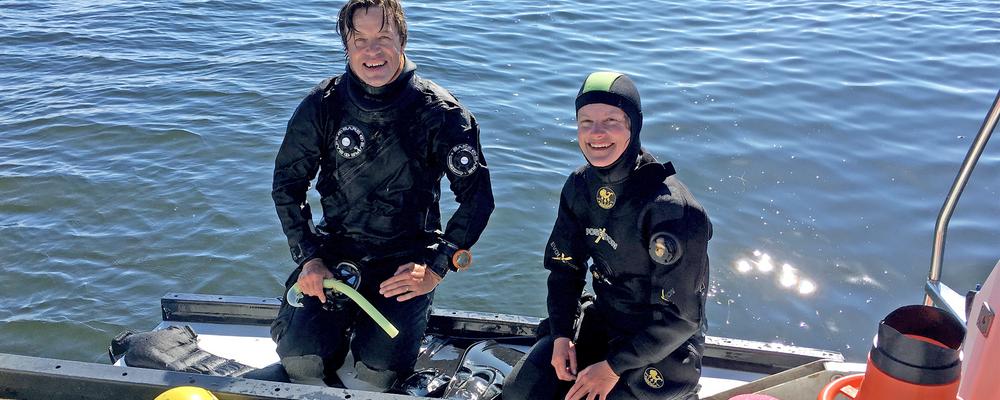"I still can’t quite believe it! I have had some success with smaller grants, but this is my first big project. I actually returned a few weeks last winter from parental leave to write the application, so it is extra nice that it was worth it", says Marlene Jahnke.
Marlene Jahnkes project will provide a picture of the situation of genetic diversity of eelgrass today. The project will try to understand if and how sexual reproduction of eelgrass will be affected by climate change.
"Reduced sexual reproduction leads to less genetic variation, which in turn may lead to less adaptive potential, resistance and resilience to climate change", says Marlene Jahnke.
The project will also use different modelling techniques useful for prioritizing meadows for protection and restoration, and to assess meadows’ ability to recover and adapt in the future.
"This will help the responsible authorities to meet key requirements of national, EU and UN directives and Sustainable Development Goals. The final aim is to develop a management guide for Baltic eelgrass under climate change", says Marlene Jahnke.
Preventing small-scale physical disturbance from causing loss of coastal habitats
Per-Olav Moksnes project deals with small-scale exploitation of shallow coastal areas. This is a growing problem in Sweden, resulting in increased turbidity and loss of valuable habitats such as eelgrass.
The project will try to identify possible thresholds in activities such as small-scale constructions of docks, dredging and boat traffic. This information will be used to develop a more functional legislation and management.
"We have a great interdisciplinary team that in addition to my own background in marine ecology consists of Professor in Environmental law Lena Gipperth at Gothenburg University, ecotoxicologist Erik Ytreberg from Chalmers, and remote sensing expert Oscar Törnqvist from SGU. We are very excited to get started!"
Collaborators on eelgrass research
Marlene Jahnke and Per-Olav Moksnes have several ongoing collaborations. They are both part of the research group Zorro, which focus on research about management and restoration of eelgrass in Sweden.
"I would like to add that I am in some ways even happier for Marlene’s grant since she is early in her career, when obtaining your own grant is very important. And Marlene is a really great scientist so it is very well deserved", says Per-Olav Moksnes.
Read more about the grants on Formas website
Text: Susanne Liljenström


